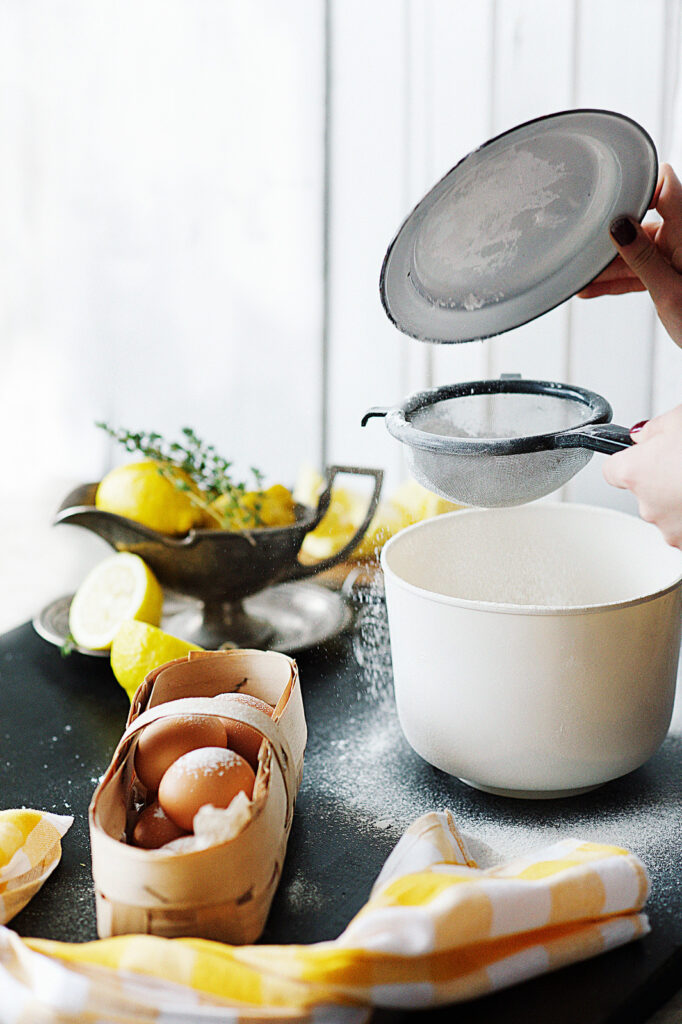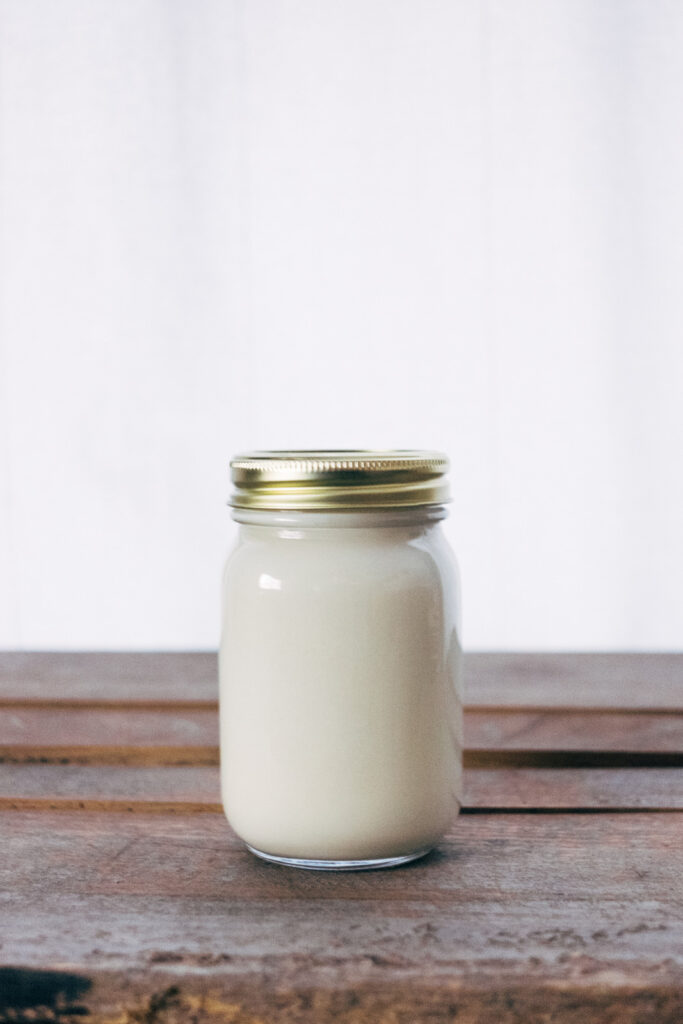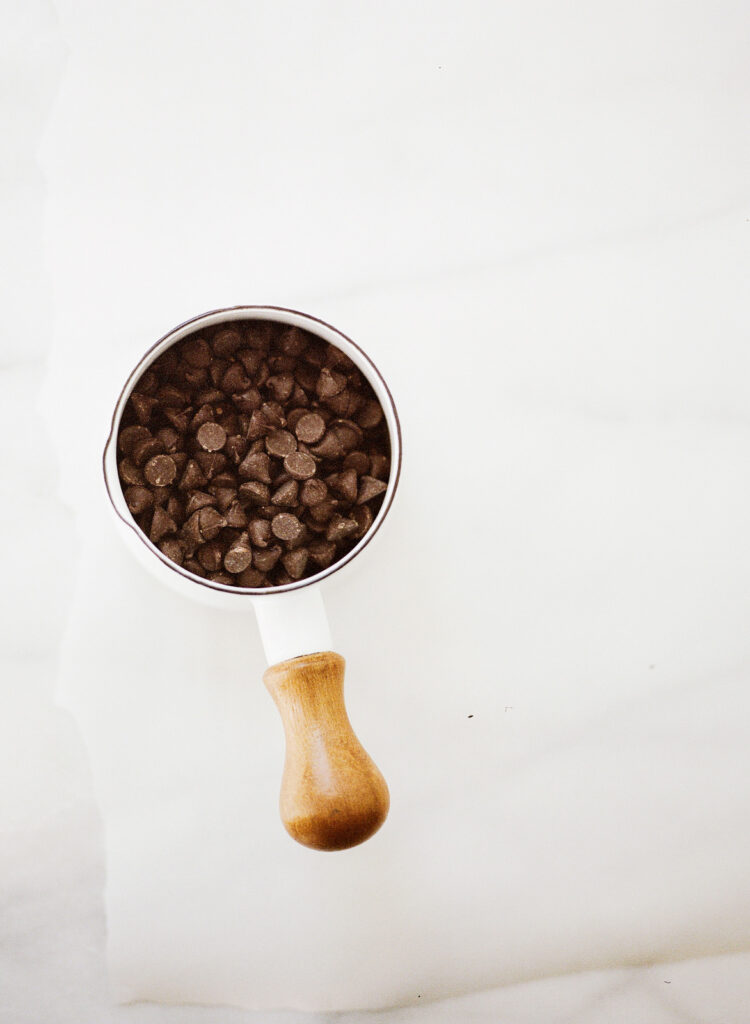It’s been 8 years since I went through the growing pains of cooking abroad, that I had almost forgotten about it. It had been brought to my attention my a fellow expat (Hi Emma!) that it was difficult to find some of the ingredients in my recipes. I had gotten so used to calling up my good old friend Google to find equivalents for recipes. If I was looking for equivalents, then you must be too! So here you go! This expat baking guide is for all of you fellow expats out there that may be going through what I did!
When I first moved abroad, cooking was quite a learning curve. Oven’s were different, ingredients were different. Things that I knew how to make with my eyes closed were suddenly instant failures and I didn’t know why. Everything, from my ingredients to my atmosphere, was different!
Flour
Yes, even flour is different! French flours are graded based on the ash level in the ground flour (per 100g). The milling process is also different and flours are mixed different, making it difficult to give you an exact equivalent. Even the protein of the wheat itself is different, resulting in a dough that is a lot less elastic than if made with an American flour. This means that there is no exact replacement for American flours in France or vice versa, but these are the closest equivalents that I have been able to use successfully.
- Cake/Pastry Flour – Farine T45
- All-purpose Flour – Farine T55
- High Gluten Flour – Farine T65
- Light Whole Wheat Flour – Farine T80
- Whole Wheat Flour – Farine T110
- Dark Whole Wheat – Farine T150

If you’re in the Paris area, you can find self-raising flour at international stores such as Marks & Spencer’s. Alternatively you can make your own!
Self Raising Flour – 1 cup (128g) all purpose flour + 1.5 teaspoon baking powder + 0.5 teaspoon salt.
For those of you who are abroad, you may notice that a lot of my recipes calls for T45 flour. If you don’t have this on hand, you can mix some all-purpose flour with corn starch to have a quick alternative to cake flour at home.
Cake Flour – 1 cup minus 2 tbsp (100g) all purpose flour + 2 tbsp cornstarch.
Most grocery stores carry T45, T55 and T65 flours. If you need anything stronger than that, you may find yourself going to a couple shops before you find what you need.
For those of you who are in the Versailles area, or don’t mind making the trip from Paris, I highly suggest going to Les Moulins de Versailles. Located next to the Versailles Chantier train station, they are a family run mill that have been open since 1905. All of their wheat is procured locally (within 100km) and is milled right in the heart of Versailles. They also have a small selection of other baking ingredients, bread baskets etc for sale in their shop.
Sugar
Sugar is pretty much the same. Here are the translations of the main sugars used in baking:
- Granulated Sugar – Sucre en poudre /sucre en cristal
- Powdered Sugar – Sucre glace
- Raw Sugar – Sucre de canne
- Brown Sugar – muscovado or vergeoise

Sugar is pretty straight forward, as long as you know what the names are in French. It is important to note that French brown sugar is not the same as American brown sugar. To make muscovado (french brown sugar),the juice from the cane sugar is heated up and then once the liquid is evaporated, what is left is ground up into a powder. It has a similar flavor to American brown sugar, but is not the same.
You can however, make your own brown sugar at home. If you have a mixer (or food processor), all you need is molasses and granulated sugar.
- For light brown sugar the ratio of sugar to molasses is 1 cup : 1 tbsp
- For dark brown sugar, the ratio of sugar to molasses is 1 cup : 2 tbsp (or 3tbsp, depending on how dark you want).
Mix until thoroughly combined and store in an air tight container or zip lock bag.
Molasses
Thankfully now days you can actually order molasses on Amazon.fr. When I first moved abroad, it used to me one of the ingredients that I would lug back in my checked luggage.
You can alternatively find molasses (mélasse in French) at any natural food stores, such as Naturalia. Much like any ingredient you find abroad, it will never be 100% the same as what is available in your home country. Molasses in France is actually sulfured and unrefined. It also has a much stronger flavor than American molasses.
If you find that it is too strong for you, you can cut it with a mild/neutral flavored honey. Of course if you prefer a stronger molasses, use it as normal. However, be aware that it may overwhelm other flavors in the recipe.
Yeast
You can find levure du boulanger in the baking aisle of any supermarket, which is active-dry yeast. If you want instant yeast, look for levure instantanée. Personally I have a harder time finding the latter.
For most of my baking needs, I use fresh cake yeast or levure boulanger fraîche. It is quite easy to come by in France and personally I find that it gives my baked goods a deeper flavor. Plus, I’ve never had a yeast fiasco where my baked goods didn’t rise properly due to not properly activating my yeast. You can buy it at any bakery, or natural food stores (stored in the cold section). They normally come in 42g sized cubes. My local bakery sells them for 35 cents a cube. Since I bake a lot, I generally grab a couple cubes each time I go. As long as they stay sealed, they won’t dry out faster than I can use them.
If you’re unable to get a specific type of yeast, you can of course substitute it with different type of yeast. To convert from fresh yeast to active dry yeast, multiply the fresh quantity by 0.4. Active dry yeast must be hydrated in warm water before being incorporated into a dough.
To convert from fresh yeast to instant dry yeast, multiply the fresh quantity by 0.33. Instant yeast can be incorporated into the dough without first re-hydrating it.
Cream
Cream was a difficult one to get the hang of personally. I was so used to going and picking up a pint of half & half, which doesn’t exist in France. Hopefully this list breaks it down for you.
- Half & Half – There is no equivalent but you can make it at home. Half and half is a mix of 1/2 whole milk and ½ cream. For a more detailed post on half & half, The Kitchn has you covered, click here.
- Heavy cream – crème entière / crème fleurette / crème liquide
- Low fat heavy cream – crème légère
- Sour cream – crème fraîche
- Buttermilk – lait ribot or lait fermenté

I always replace my sour cream with crème fraîche (30% fat), but if you’re looking for a lighter substitution for baking, full fat fromage blanc (20%) works as well.
If you’re like me and never have buttermilk because you can’t use the whole carton before it goes bad, you can make your own. Add 1 tbsp of white vinegar to 1 cup (240ml) of milk and let it sit for about 10 minutes prior to using it. I use this 99.9% of the time and it works the same!
Cream Cheese
In recent years, Philadelphia cream cheese as become more common and you can buy it in almost any grocery store in the chilled cheese section. British stores, such as Marks & Spencers carry their own brand of cream cheese. Many people in France use Kiri for making cheesecake but you can also use St. Moret.
If you’re wanting to make a cream cheese frosting, keep in mind that Philadelphia cream cheese in France actually has a lower fat content, than in the US. Here in France, it only has 21% fat, where as in the US 34%. Why am I mentioning this? Personally, I have been unsuccessful in making a cream cheese frosting here in France. So if you’ve ended up with a soupy mess, the fat content most likely is the reason. I suggest making a Swiss meringue buttercream and then add cream cheese to that. It tastes just as good and holds up enough to pipe or ice a cake.
Corn Syrup
As another ingredient that I bring home on my very rare trips, corn syrup is quite difficult to get your hands on in France. Personally, I don’t use it that much. However it’s a essential ingredient for pecan pie which I make every year for Thanksgiving. American corn syrup can be found in expat stores that are scattered around Paris, however they come at a hefty price.
You can find light corn syrup at some Asian markets such as K-Mart & Tang Frères for a lower price point. Alternatively, it is said that you can replace corn syrup with glucose syrup, however I have personally not tested that yet. Glucose syrup is available in the baking aisle of most supermarkets or you can buy it at professional baking supply shops, such as G. Detou or Mora.
Cornmeal
Cornmeal can be found mostly in North African markets and is called farine de maïs or semoule de maïs depending on how fine or coarse it is. Alternatively, you can make it yourself at home if you have a food processor and corn kernels. Costco, which recently opened south of Paris, carries fine cornflour and big buckets of unseasoned corn kernels, so I generally pick up one of each and then I’m set for about a year.
Chocolate
Getting your hands on baking chocolate is quite a bit easier than in the USA. If you need bittersweet or dark chocolate, you can use any chocolat noir tablets in the supermarket. If you’re looking for a stronger chocolate or chocolate in bulk, G. Detou sells chocolate in bar or drop form. They also sell the heat resistant chunks, if you want to make some chunky chocolate chip cookies. If you’re not in the Paris area, you can order bags chocolate from Alice Délice or La Boutique des Chefs. La Boutique des Chefs has promotions quite frequently. I nabbed a 5kg bag of good quality Barry dark baking chocolate a while back for 25 euros. Their shipping is a bit slower than other sites, so keep that in mind if you need chocolate quickly.

For cocoa powder, every supermarket has one or two option. As dutch processed cocoa powder is the norm in France, anything you can get will do. I buy 1kg sized bags at G. Detou of bitter cocoa powder from Barry Chocolate for around 10 euros. If you bake quite a bit, buying bulk definitely pays off.
Baking Soda & Baking Powder
You can find baking soda (bicarbonate de soude) and baking powder (levure chimique or poudre à lever) in any supermarket. Alternatively, most expat stores carry American or British brands, however again the prices may be quite high. I buy baking powder in bulk at Costco. For baking soda, I found bulk bags at the garden center of all places!
Well there you have it! This expat baking guide ended up a bit longer than I had initially planned, but I wanted to make sure that I hit all of the main elements. If there is anything else you need equivalents for, let me know in the comments section below!
Would you also appreciate other expat related posts? Where to shop for baking equipment or markets in the Paris area? Let me know! I truly do appreciate hearing from all of my lovely readers!






I found this article quite by chance. I have lived in France for twelve years and in all that time I have been disappointed that I can’t find certain products but you have explained how to find or make substitutes so thanks very much for the information.
Hello Kathy, Oh that makes me so happy. Finding equivalents isn’t as straight forward as you would think, so I’m glad I could be of some help!
Thank you so much for your reply. I’ve just read the article again because it’s so useful. I shall print it off to keep it handy.
I happened to chance upon your site while searching for the term ‘whole wheat flour’. It’s like a life saver! I lived in France for 2 years now and have been baking. Have so much difficulties making out the names of the important ingredients in some recipes in French – like sour cream… none of the people I asked actually heard of it here. There was even a chef I asked lol….thank you for this article. It was most informative
Thank you Jennifer! I remember those days well and am so happy the article is of some use! Happy baking!
Bonjour, and Merci from Brittany by way of Seattle, Washington. I was wondering if the cake/pastry flour will make a familiar American style soft cookie?
Hello! I always use T55. T45 would be the equivalent of cake flour in the US, T55 is closer to all purpose.
Bonjour –
An American living in Brittany!
Thank you for your blog – it’s very helpful for someone that is trying to navigate through all the different French ingredients.
Kind regards,
JoAnne
Hello JoAnne, thank you for stopping by. Oh yes, I remember how hard it was when I first moved to France trying to figure out the equivalents so I’m happy I could be of some help!
Bonjour, I had two pots of Baking powder in my cupboard but no Bicarbonate of Soda…I have been here six years and in the past had asked a friend or family member to bring some over when they came. Home baked Chocolate chip cookies were calling my name and I was without all the ingredients. Thank goodness for your website, so helpful and informative. Many thanks and keep up the good work. Kind regards Melanie
Thank you for stopping by Melanie! I am glad to be of help! Happy baking!
Best Article I have found since I moved to France! Thank you! I needed this a year ago. I have been to the Les Moulins de Versailles looking for organic whole wheat (soft & hard / white & red) for my food storage. They sell a 5 kg bag that is for chicken feed but it does not say that it’s organic and it has not been sifted, so some debris, which I would prefer not to have to sit and clean but I would if I had to. With the amount of bakeries and wards on their wheat I would of thought that it would be easier to find a place to buy the whole wheat in bulk. Do you know of any places that sell the organic whole wheat? Do you know if they spray with glyphosate here in France? And do you teach how to bake a true sourdough or where I can buy some? I know too many questions but I loved that you are so knowledgable! Thanks again.
Thanks for stopping by Dinah! Have you tried looking at a bio store, such as Naturalia or BioCoop?
From what I know, glyphosate is forbidden for individuals to use and there is a movement to try and get it banned all across the board. I believe the EU is expected to make a decision by the end of 2022.
I am still trying to master sourdough myself, but you can do to any bakery that sells sourdough and ask if you can buy some levain “Sourdough Sophia” is a great sourdough baker in the UK who has a cookbook that is fairly in depth!
Happy Baking!
Dear Natalya, I just want to thank you for writing this article. I was driving myself crazy trying to find baking ingredients in Monaco. Even tried to bake banana bread without baking soda and only using “levain pudre?” haha noob mistake, anyways… I will go again tomorrow to the supermarket as now I know the names of everything. Have a lovely weekend.
Hello Karen, I remember those days! Happy to be help!
Hi Natalya, ant advice on which flour to us in a crumble mix please? I think it is also sometimes referred to as a crisp, as in Apple crisp/crumble.
Thank you….
Hello Lynne, I always use a T55 flour in France for my crumbles without any issue! Let me know how it goes!
I’m visiting Paris for one week and looking for really good T45 flour, gruau rouge, bagatelle, etc. what can I purchase 5kg/25kg? Thanks for your help.
I would definitely hit up G.Detou or the flour mill in Versailles (Moulins de Versailles, next to Versailles Chantier station) as they should be able to help you source large quantities of flour.
Hi Natalya, Thanks for all of this.
This might be of use to a lot of you, I’ve used this recipe from Krista livingwithcookies.com for a while now to make cream cheese frosting with Philadelphia spread. It’s perfect!
https://livingoncookies.com/how-to-make-cream-cheese-frosting-with-european-cream-cheese-or-cream-cheese-spread/
Thank you so much, I’ll be sure to try this out!
Hi Nayalya, thanks you for sharing this. Finding ingredients is difficult so this post is invaluable. Trawling through labels when new in France is hard especially when my level of french is basic. Thanks and it was lovely to meet you at the Chinon Curry Club. 😊 Fiona, La Vigne Morte.
Happy to be of assistance, I remember those days like they were yesterday. Lovely to meet you as well. If you ever want to stop by for a cuppa and chat, you’re more than welcome!
Hi thank you for the information- I wish I had found this article earlier but all good now. I’ wondering what is Thea crust name of the different flours like whole wheat or buckwheat. Also when ordering “sourdough” bread what is it called in French. I’ve had boulangeries téll me all their bread is Levin.
Thank you
Elsa
Hello Elsa, thank you so much for stopping by! Buckwheat is sarrasin and whole wheat flour would be blè complet. Sourdough bread is pain au levin/levain. I find french sourdough bread a bit on the milder side, in comparison to a San Franciscan sourdough etc.
Well I am totally confused.! Everythiing I have read so far has said that European Self-Rising flour does not contain salt, escept this one. Another thing that confuses me is that according to my allpurpose flour bag, 1 cup weighs 120 grams. Your recipes reads that 1 cup of flour weighs 128 and another said it weighs 150 grams and that recipe did add only the baking powder. Please help me understand this, both the difference in the wight of the flour and the addition/omission of salt. Thank you.
See this is why the cup system is stupid. Because different flour has different density. But the weight stays the same. My measurements are based on American cups (British or Australian cups are not the same as American cups!)
The best practice is to measure it yourself, and make a note. Measure everything and use it as a reference. In my experience, a cup of All Purpose flour (T55) weighs 128 grams. However in terms of flour, 5-10 grams don’t matter as much.
Consider all purpose flour (T55) as 120-128 grams. And if you wanna measure it yourself, fluff up the flour by running your cup through it. Many times. Then fill a heaping measure cup. Use a flat thing to level out the flour. Then weigh it.
As for the self rising flour, the ones that I have personally used had salt added in. I do adjust depending on the recipe, if the recipe that I am using calls for self rising flour (and what I have on had as added salt), I sometimes leave the salt in the recipe itself. But that’s a case by case adjustment.
Hope this helps!
Thank you for your help with the T45 and fresh yeast conversion. I follow this awesome French Chef on YouTube and he uses lots of T45 and fresh yeast which are impossible to find in N AZ, this helps me adjust his recipes without any problems. :).
This makes me so happy! So glad to be of help!
Hi Natalya,
Thanks for this super useful guide! As an American living in France, it can be hard to find the ingredients to make things taste just like they do back home. 🙂 I’ve attempted to make several kinds of cookies, using American recipes, and am having an issue with the butter. French butters have a higher fat content and this is resulting in flat, sometimes greasy/oily cookies. Any tips on how to adjust quantities to compensate? Thanks in advance!
Hello Stephanie,
Hmm I have actually not had any issues using french butter as a replacement for American recipes. My go to butter brands are ‘Grand Fermage Beurre Doux extra fin’ or ‘Isgny Ste Mare Beurre Doux extra fin’.
Hi Natalya, thank you so much for posting this. I’m a Canadian living in France and I’ve been making non-french bread very unsuccessfully using American recipe.s I’ve always thought that maybe I just can’t properly knead bread. Then I see this post and I realized that maybe it’s not me….maybe it’s just my ingredients that aren’t proper. My dough never seems to come out as elastic as it should be and from what you mentioned about proteins in French flour being different, thus affecting the elasticity, I think that’s my underlying problem. I’m hoping some different flour blends might fix this. My American recipe calls for bread flour and cake flour.
And while reading your post about flours, I scrolled down and see the section on cream cheese. My mind was blown. I also never successfully made cream cheese frosting with Philadelphia in France and I never knew what went wrong! Until now!! (how dare they use the same packaging for lower-fat Philadelphia -_-). Thank you for restoring my baking confidence.
My pleasure!